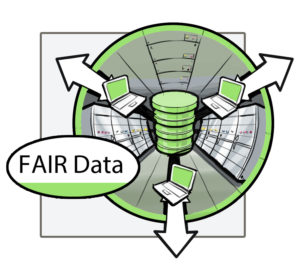In a series of blogs, we
compare our mission of UNLOCK (to unlock microbial potential) with the quest
for a dream team, like in sports. Our research platforms have different ways to
identify new talent, but they are complementary and have one thing in common:
They generate data. These data are taken care of by the FAIR Data platform.
By the UNLOCK team / June 20, 2022
KEY MESSAGES
- Microbes are everywhere, but only 1% of their talent has been discovered so far.
- Microbes are natural team players. That’s why UNLOCK aims to investigate microbes in the context of their “community” or team. Their true talent might remain uncovered when they are forced to play by themselves.
- Multiple ways hold the key to identifying the right talent and composing a dream team.
- Each approach generates a lot of data to quantify microbial (performance), which need to be Findable, Accessible, Interoperable, and Reusable. This is taken care of by the FAIR Data Platform.
The complexity of team play
Data according to the FAIR principles
FAIR stands for Findable, Accessible, Interoperable, and Reusable. Imagine a sports team working with a new coach who wants to know all about the performance of the team and its members so far. Think about the number of victories, strengths, and weaknesses, health-related data.
- It would be most efficient if this data is easily findable and accessible in a (digital) logbook that is kept and made available by the previous coach(es).
- Furthermore, the metrics used in this logbook should be interoperable – understandable – for every (new) coach. In this case, it would help to work with units everyone understands: weight in kg, heartbeat per minute, and power in watts.
- Finally, the data needs to be reusable: Perhaps the coach wants to reanalyze the previous data, for instance, by not looking at the average heart rates in rest but fluctuations of the heart rate over time. To this end, the data should be handed over in a format that allows the coach to redo this analysis.

More than just numbers
How to ensure FAIR play
Team work makes the dream work?
In this blog series, we aim to illustrate the importance of team play when studying microbial communities. In our next and final blog, we will explain where microbial teams can be used for and how UNLOCK can actually contribute to unlocking microbial potential.
- Lead image by CDC via Unsplash

